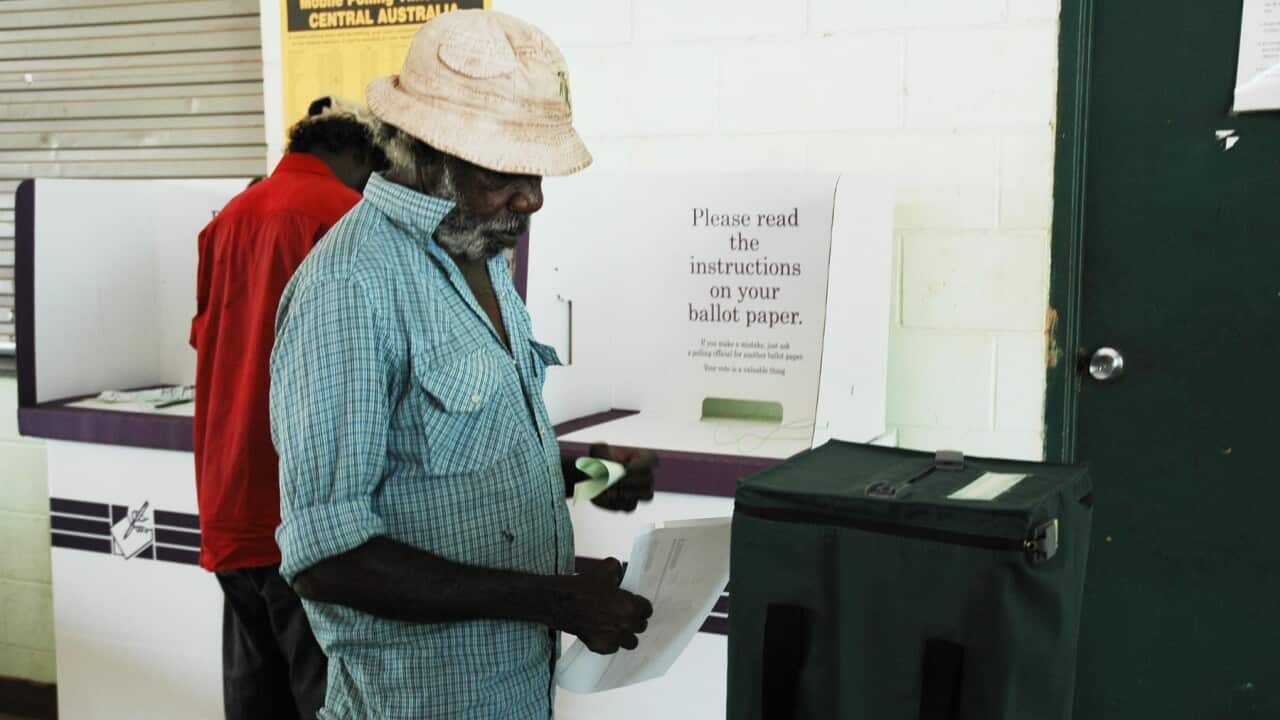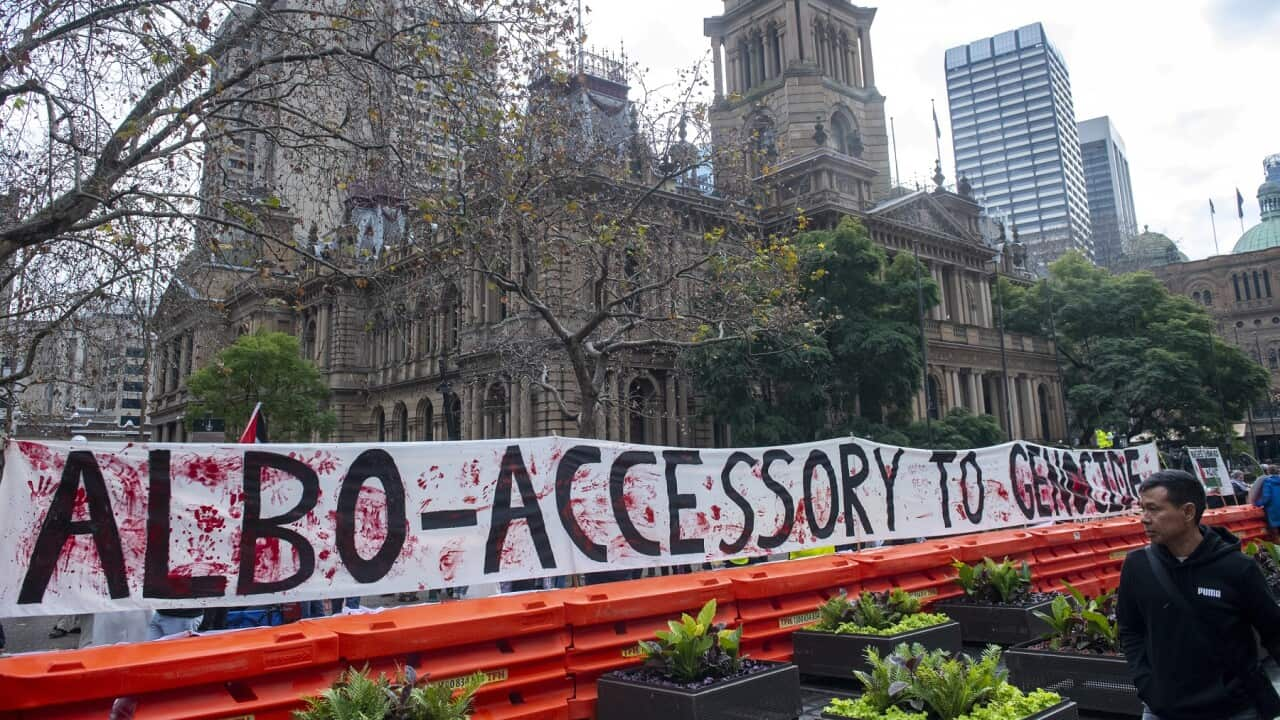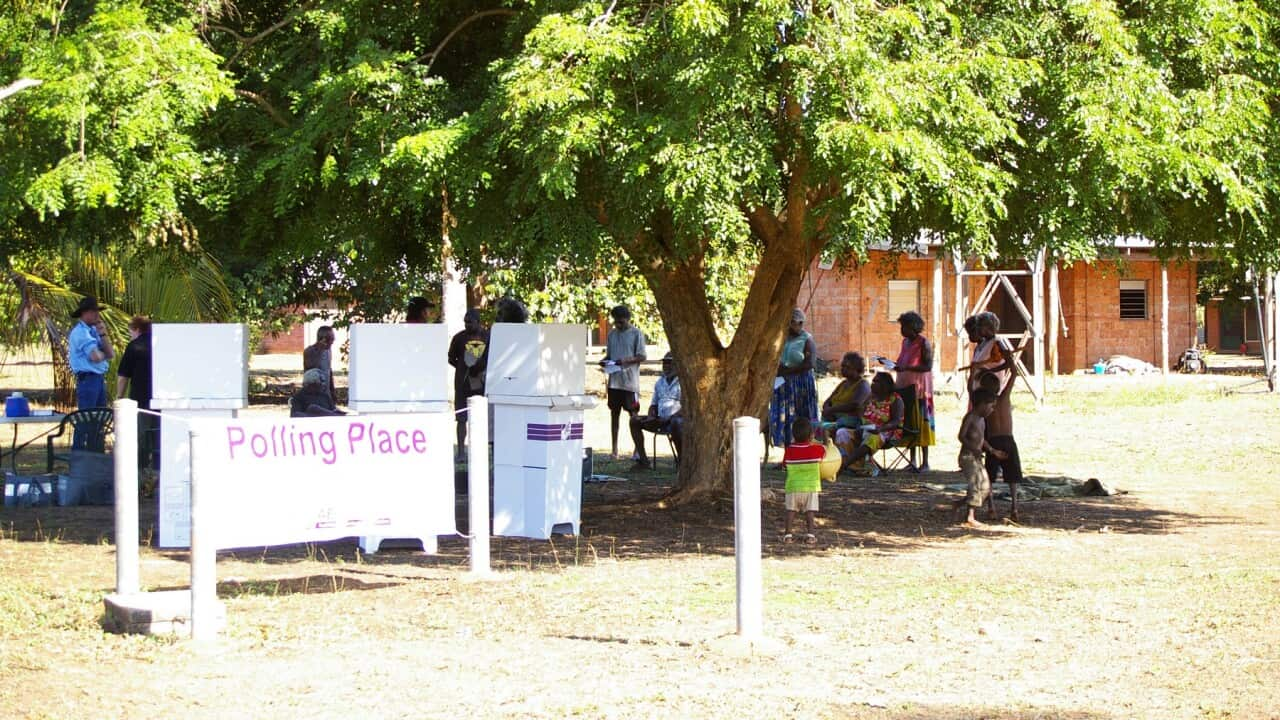TRANSCRIPT
In the last election, talk of First Nations affairs was everywhere – with Labor’s campaign featuring the promised implementation of the reforms described in the Uluru Statement from the Heart.
The first step was Voice, a constitutionally enshrined advisory body on First Nations affairs.
While Labor did keep their promise to hold the referendum, it was defeated in late 2023.
Since then, the major parties have taken a different approach to addressing First Nations affairs in their election campaigns.
“It’s been completely absent from any of the campaigning from both sides of the major parties, and that’s quite deliberate. They’re both steering away from it because they don’t want the failure of the referendum tarnishing any of their potential chances. Labor has seemingly walked away from the Uluru Statement from the Heart, there’s been no mention of Truth or Treaty. The Coalition’s response, there has been an assumption that the Australian public does not support Indigenous rights.”
That’s Dr Bartholomew Stanford, a Torres Strait Islander man from Masig Island and senior lecturer in Indigenous Studies at James Cook University.
Labor has pivoted to economic policies, preferencing reforms for programs to increase employment and Commonwealth procurement, funding for First Nations environmental ranger programs and general policy, such as an increase in urgent care clinics.
The Coalition’s core Indigenous policy is a promise to audit Indigenous expenditure, and address what they call 'wasteful spending'.
They have created a new role for “government efficiency”, reflecting moves by the Trump administration in the United States.
Dr Stanford believes both sides of government have failed to address key issues affecting First Nations people and fulfilling Indigenous rights – including not implementing the United Nations Declaration on the Rights of Indigenous Peoples.
“Australia’s falling well behind other settler nations and is not meeting basic international standards, which is really undermining any genuine attempts at reconciliation in our country while also tearing at the fabric of Australia’s national identity.”
These tensions can make election time stressful for First Nations communities and community-controlled organisations, says Catherine Liddle, CEO of SNAICC - a leading organisation for First Nations children and families.
“What we are interested in is policies that make a difference, policies that show that governments are actually doing what they need to do and that is listening to communities. We know that come election times, for Aboriginal and Torres Strait Islander people it’s often a really anxious time because we know that the conversations and policies often become a quick race to the bottom.”
First Nations communities experience distinct challenges that are often overlooked by policy, as reflected in the reporting from Closing the Gap - which does find that only four out of 19 targets are on track (SNAICC 2025).
It's yet another source of frustration and anxiety for First Nations voters.
Meanwhile the Australian Electoral Commission has started to send out mobile polling teams, who go to almost 500 remote communities across Australia – many are First Nations communities.
One of these communities is Pirlangimpi, in the Tiwi Islands at the top of Australia.
Like many remote communities, they face challenges such as over-crowded housing, limited access to health services, and badly maintained infrastructure like roads.
NITV’s Josh Van Staden travelled to the Tiwis to look into the issues for these communities.
He spoke to community members who still advocate for voting.
Vox 1 “But it’s good for us to vote, because then we can hear about what’s going on..."
Vox 2 "What is going to happen."
Vox 3 "What needs to be done and ..."
Vox 1 "Yeah what needs to be done.” ]]
Pirlangimpi sits in the seat of Lingiari, an electorate named after a trailblazer for Indigenous land rights – Vincent Lingiari.
It’s an electorate that spans the majority of the Northern Territory, it is also the electorate with the highest proportion of First Nations voters.
The seat is currently held by Marion Scrymgour, a Tiwi and Anmatjere woman and Labor member.
When interviewed by Karla Grant for NITV’s Living Black this month, Ms Scrymgour said her constituents were devastated by the result of the referendum and would advocate for Truth and Treaty.
MS: “And they wanted to be able to say to governments 'let us drive this policy debate and let us be able to make the decisions and to work with the government to get better outcomes for our communities'.”
KG: “So what do you say that a re-elected government should do about Treaty and Truth-telling?”
MS: “Y’know Karla it’s not up to me to say as a re-elected government but certainly as a re-elected member in Lingiari, I will do everything I can as the local member to elevate those voices.”
While Dr Stanford welcomes the support for Truth and Treaty from Ms Scrymgour, he also cautions voters to consider whether parties are likely to support the values of their local members when it comes to First Nations Affairs.
He also says this same critical thinking should be applied to voting for minor party and independent candidates.
Ms Liddle also provides some advice for voters for election day and into the next term of parliament.
“One of the beautiful things about elections is that, it doesn’t matter who you vote for, that you can use your voice. And you have the ability to lean into whoever you’re going to vote for and say 'Behave better. You are politicians, you have incredible structural and institutional power'. So urge your politicians to step up. That is investing in the policies that make a fairer and more equitable society for all Australians.”













